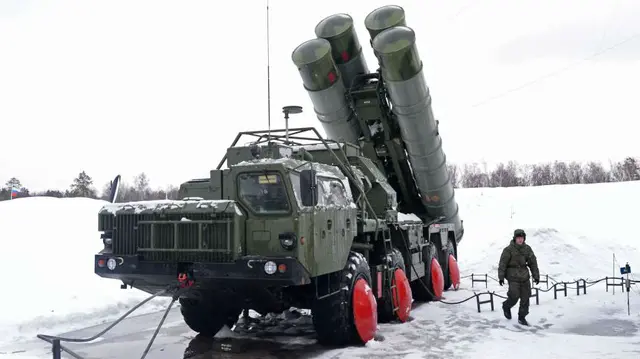Trust in bilateral relations between Turkey and the U.S. is so eroded that the two NATO allies could be subject to deeper diplomatic disputes although Ankara and Washington recently have taken steps to restore a visa crisis, experts said.
"Bilateral ties are in such bad state. Therefore Turkey and the United States have faced another crisis about the statements, while trying to resolve the visa crisis. That's all because of the mutual distrust," Deniz Zeyrek, daily Hurriyet commentator said.
Zeyrek was referring to mutual statements made by the Turkish Embassy in Washington and the U.S. Embassy in Ankara on Monday to announce resumption of visa services for citizens on limited base.
The Turkey-U.S. visa row was sparked on Oct. 8, when the U.S. Embassy in Ankara announced the suspension of non-immigrant visa services to Turkish nationals, following the arrest of a local employee at the U.S. Consulate in Istanbul, prompting a tit-for-tat response from Ankara.
Turkey will resume processing visa applications at its diplomatic missions in the U.S. on a "limited basis," Turkey's Embassy in Washington announced on its Twitter account late Monday, short after the embassy issued a new statement challenging the U.S. Embassy announcement, which said the Turkish government provided assurances about the safety of staff at its missions there.
The Turkish Embassy then stated that Ankara has not given any assurances regarding ongoing jurisdiction files.
Resumption of visa services came on the eve of a four-day visit to the U.S. by Turkish Prime Minister Binali Yildirim during which he is set to meet with Vice President Mike Pence at the White House, signaling a tentative improvement and easing a nearly month-long visa row in bilateral ties.
Turkish-U.S. relations are facing many ups and downs in recent years, with the latest of them erupted after the arrest of U.S. Istanbul Consulate local employee Metin Topuz on Oct. 4 over espionage charges and alleged links to the group of U.S.-based preacher Fethullah Gulen, who is blamed for the July 15, 2016 coup attempt.
U.S. administration responded with suspension of visa facilities in Turkey, while Ankara retaliated the move in the same way.
The new administration of President Donald Trump was initially seen by Turkey as an opportunity to reset relations with its NATO ally, which had soured under former President Barack Obama's tenure. The hopes were nourished when Trump called the Turkish President Recep Tayyip Erdogan in April after his victory in a referendum that granted the Turkish leader sweeping powers.
However, spring weather in ties short-lived as the new U.S. administration boosted its support to the Syrian Kurds who are fighting the Islamic State (IS), angering Ankara who sees the People's Protection Units as an offshoot of the outlawed Kurdistan Workers' Party.
Turkey is also disappointed by Washington's refusal to extradite Gulen, frustrated by the U.S. detention of a Turkish-Iranian businessman and a Turkish state bank official for alleged involvement in a sanctions-busting scheme to sell gold to Iran.
Tension escalated when federal prosecutors in New York indicted former Turkish Economic Minister Zafer Caglayan and three other Turkish citizens in September on charges of violating U.S. sanctions against Iran.
The U.S. media speculated that Erdogan and some of his family members may be implicated as suspects in the ongoing U.S. court case.
Washington sees the detainees, including Andrew Brunson, a U.S. pastor who was arrested in Turkey over alleged links to Gulen Movement, are used by Ankara as bargaining chips.
The Turkish President Erdogan said the pastor would be released only if the U.S. extradites Gulen.
The meeting between Pence and Yildirim on Thursday is very crucial in order to heal jeopardized ties between Ankara and Washington, journalist Zeyrek said, stressing that the two officials have positive manner that could mend the ties before the situation reaches damage beyond repair.
Zeyrek resembled the state of deterioration of Turkish-U.S. ties to "last exit before the bridge."
He recalled developments in Saudi Arabia where arrest orders were made by a panel Saudi King Salman bin Abdulaziz Al Saud which signals a massive transition in oil-rich country and said the region is "reshaped."
"The U.S. started to perceive Saudi Arabia as its new moderate Islam partner in the region and gives signals that it may abandon Turkey," he stated.
Turkey and the United States haven't been the best of allies for decades, eventually U.S. power and influence ranks as the top threat by 72 percent of Turks, according to Pew Research Center.
It is very difficult to see the visa incident as merely an ephemeral illness in bilateral relations, burka Kuntay, the President of Center for American Studies at Bahcesehir University, told Xinhua.
Kuntay also said that any other issues could be source of a new crisis.
The alliance between two NATO members is questioned since early 2000s, Kuntay said, referring their partnership within Western block since Cold War.
The expert said one should question where the common interests of Turkey and the United States is heading to and if there is sufficient "mortar" anymore to keep on this alliance.
"It is possible that they are still members of a common camp" in the world, he said.
(ASIA PACIFIC DAILY)
 简体中文
简体中文

